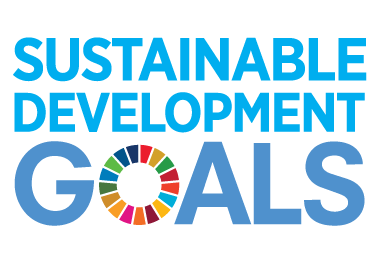SIRIUS and the United Nations Sustainability Goals

Personalized healthcare enabled by information technology can improve patient safety through better combination of clinical data and patient records.
Laborious data retrieval and review activities can be automated and simplified, and health professionals can have easier access to literature and unstructured data. SIRIUS is addressing this goal through the BigMed beacon project for personalized health care, research related to search in medical linked data and friendlier user interfaces to medical information systems. Semantic data integration has been demonstrated as a tool that allows automatic filling out of pre-operative forms. Finally, we are working on applying formal methods for better hospital planning. See our page on Personalized Medicine for more information.
Digitalization is generating needs for general and specialist training in how to use and interpret data. This means that there is a need for scalable data access tools in education. Our specific focus here is engineering and geosciences. Once again, we can automate and simplify data retrieval and review activities and provide easier access to literature and unstructured data.
SIRIUS is contributing to quality education through its Digital Geosciences initiative, in collaboration with UFRGS in Brazil. We are also working in the University of Oslo’s researcher track for informatics undergraduates.
Effective design, construction and deployment of water treatment and sanitation systems is dependent on good data access. The internet of things provides cheaper and better ways of controlling and optimizing water systems. This requires methods for secure and effective implementation. SIRIUS is supporting this goal through work with NIVA on a PhD project on data science applications. Our work on digital twins and requirements are directly applicable to capital-intensive water systems.
Scalable data access can reduce the capital cost of new energy systems and infrastructure. It can lead to better operations, lower energy usage and a lower carbon footprint. Good data access can also lead to more effective planning of maintenance and logistics for complex, remote and offshore facilities. SIRIUS address this through its operations beacon projects, that address data challenges in engineering requirements, digital twins and integrated planning. Experience from oil and gas is directly transferable to renewable energy.
Scalable data access can automate tedious and unproductive interfacing and data transfer operations in supply chains. This allows more effective and rewarding work practices and frees workers to creatively optimize their business. SIRIUS is working to support this in several ways. Ontology-based data access provides a framework for automation of tedious data retrieval and management tasks. Digital requirements management reduces documentation burden in engineering. Our geological assistant empowers geologists with new and useful tools. Better data access allows companies to move employees out of harm’s way and improve the safety of facilities
Scalable data access contributes to the effectiveness and performance of infrastructure projects. It provides a foundation for new products and services in industrial data management and data science. It also enables the implementation of open platforms for data-driven innovation.
SIRIUS is contributing to this through its laboratories for industrial data access and its operations beacons that address the digitalization of requirements, engineering and industrial operations.
A smart city is a complex system of sensors and processes, just like a large industrial plant or an oil platform. Methods developed and applied in industrial IT and automation can be applied fruitfully to develop smart cities. SIRIUS’ work on digital twins and ontology-based data access can be used to build robust and scalable systems for managing smart cities.
Scalable data access allows systems to be developed that actively reduce energy use and carbon footprint in resource industries. SIRIUS’ methods and tools reduce the cost and improve the performance of applications that raise operational performance. SIRIUS is working with the CIRFA centre in Tromsø on applying its methods for semantic data access and cloud computing to manage earth observation and climate data. See our Environmental Applications beacon for more information.
Scalable data access will improve the handling of data for oceanic research and monitoring, providing better information on the status of the marine environment and operations in the marine environment. SIRIUS’ researchers have a background from work practices in submarine environmental monitoring projects. Our digital twin and digital requirements research can be applied in maritime operations. Complex data systems for oceanic research and monitoring can benefit from ontology-based data access and user interfaces.
SIRIUS is internationally oriented. It collaborates in training and educational partnerships across international boundaries. We are building a promising collaboration with universities and industry in Brazil. We are also participating in relevant European Private-public partnerships (BDVA and SPIRE) to ensure that we are working together to solve problems.


